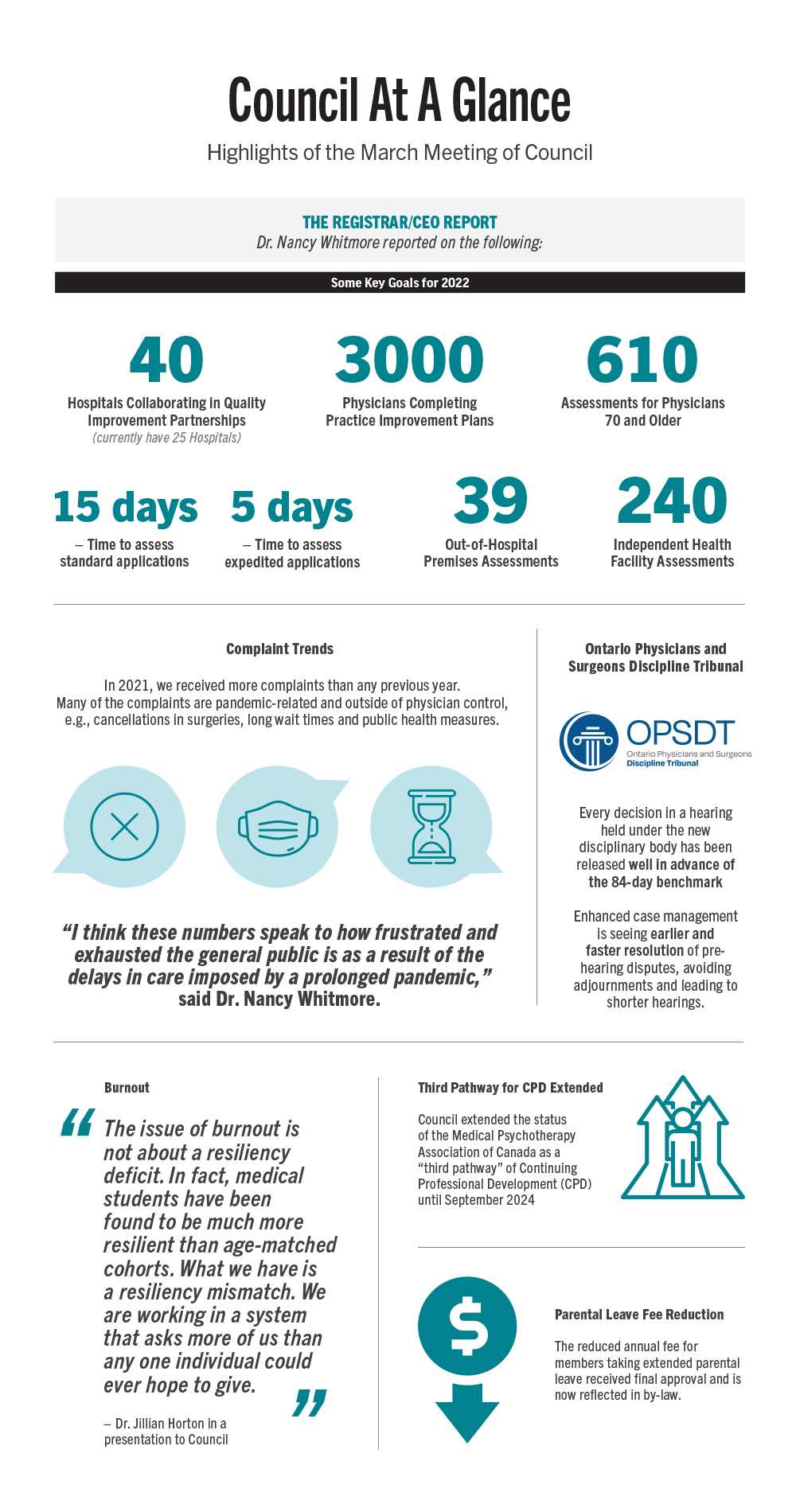The following are highlights of the March meeting of Council.

Council at a Glance infographic transcript
The Registrar/CEO Report
Some Key Goals for 2022
- 40 Hospitals Collaborating in Quality Improvement Partnerships (currently have 25 hospitals)
- 3000 Physicians Completing Practice Improvement Plans
- 610 Assessments for Physicians 70 and Older
- 15 days — Time to assess standard applications
- 5 days — Time to assess expedited applications
- 39 Out-of-Hospital Premises Assessments
- 240 Independent Health Facility Assessments
Complaint Trends
In 2021, we received more complaints than any year previous. Many of the complaints are pandemic-related and outside of physician control, e.g., cancellations in surgeries, long wait times and public health measures.
“I think these numbers speak to how frustrated and exhausted the general public is as a result of the delays in care imposed by a prolonged pandemic,” said Dr. Nancy Whitmore.
Ontario Physicians and Surgeons Discipline Tribunal
- Every decision in a hearing held under the new disciplinary body has been released well in advance of the 84-day benchmark.
- Enhanced case management is seeing earlier and faster resolution of pre-hearing disputes, avoiding adjournments and leading to shorter hearings.
Third Pathway for CPD Extended
Council extended the status of the Medical Psychotherapy Association of Canada as a “third pathway” of Continuing Professional Development (CPD) until September 2024.
Parental Leave Fee Reduction
The reduced annual fee for members taking extended parental leave received final approval and is now reflected in by-law.
Burnout
“The issue of burnout is not about a resiliency deficit. In fact, medical students have been found to be much more resilient than age-matched cohorts. What we have is a resiliency mismatch. We are working in a system that asks more of us than any one individual could ever hope to give.“ — Dr. Jillian Horton in a presentation to Council











